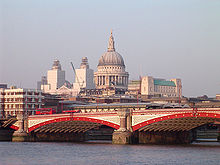The Journal of Crime & Punishment

__________________________________________
For Advertising in this space please contact the editor.
Say goodbye to emergencies at the checkout – our iPhone and Android apps have everything you need, no matter where you are. Watch the iPhone demo
video
www.kiwibank.co.nz
The CPJ is printed in hard cover, and updated online, therefore advertisements remain in the edition permanently.
This advertisement would currently cost you less than (NZ) $60
Editor,
Malcolm Baker,
Baker Publishing,
44 Spencer Avenue,
Maketu 3189,
NEW ZEALAND.
http://www.biblegateway.com/passage/?search=Genesis+1
Genesis
The Journal of Crime and Punishment- Religion
So all this genetic engineering was going on. About 200 years BC I decided to set up China. This meant combining a lot of waring states into one country, with one language and culture, and one army. I thought it could be time to bring my genetic engineering lab, and work to earth, but it was too early, and the experiment failed. Some of the results are here though; peaches, long grain rice, pumpkins and spinach (for iron), one in Italy, and one (spinach) in China. In fact God gave me a free hand to come up with whatever I chose. Some of the results are querky, showing my sense of humour, or attempt to relieve some of the boredom. Think of Iceland Poppies, the smell, and other flowers which look different but smell the same, and other flowers which look similar but smell different. Also think about serrated edged leaves, plants with milky sap, and plants with a toxin, or other useful purpose apart from human food. Also think what it must have been like for me, having nothing and having to fight for everything, knowing that I had, for instance created a perfume or a fruit in the first place.
And, you may wish to ask, who are some of these people who you claim to have lived the life of? And if you are like me, you may also wish to know "What is the philosophy behind a God who would wish to do this to a person? Either to make them so stupid as to believe this was possible, or to afflict a person with such a life, or on the other hand to make one person so great as to deny the achievements of so many humble people, not to mention evil, corrupt, perverted fornicating time wasters. People who believe God will pardon any sin, if only they are important enough, and great enough to achieve the magnificant goals of mankind and being a human being. God will show them in fact that they have not achieved anything, some of them, apart from perhaps the seven deadly sins.
The Catholic Church divides sin into two categories: venial sins, in which guilt is relatively minor, and the more severe mortal sins. According to the Catechism of the Catholic Church, a mortal or deadly sin is believed to destroy the life of grace and charity within a person and thus creates the threat of eternal damnation. "Mortal sin, by attacking the vital principle within us – that is, charity – necessitates a new initiative of God's mercy and a conversion of heart which is normally accomplished within the setting of the sacrament of reconciliation."[1]
Mathew 12: 31
The Unpardonable Sin
31"Therefore I say to you, any sin and blasphemy shall be forgiven people, but blasphemy against the Spirit shall not be forgiven. 32"Whoever
speaks a word against the Son of Man, it shall be forgiven him; but
whoever speaks against the Holy Spirit, it shall not be forgiven him,
either in this age or in the age to come.